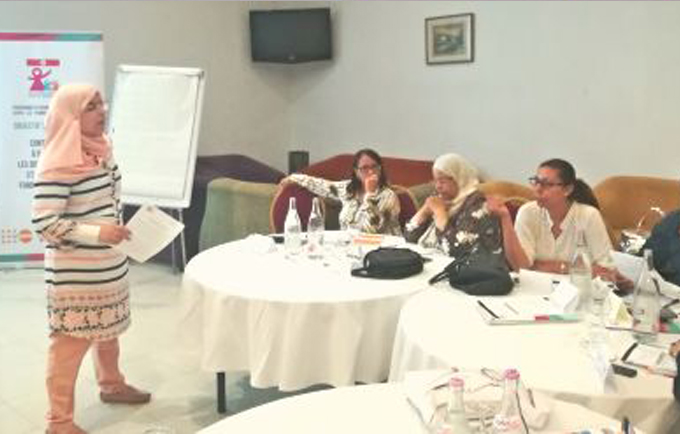GENder
Qualitative research: types, mechanisms of gender based violence against adolescent girls and the response to their needs in terms of services

© UNFPA
The United Nations Population Fund (UNFPA) and the Center for Research, Studies, Documentation and Information on Women (CREDIF) launched a qualitative research/survey in 2019 on the types, mechanisms of gender based violence against adolescent girls and the response to their needs in terms of services in Tunis.
This survey sis the result of the observation that despite all the studies carried out in Tunisia on gender-based violence, the data on this specific population remain very limited as well as the programs of combatting and prevention especially those relating to rights and sexual and reproductive health (DSSR).
After a review of the literature and a definition of the survey tools, this research included interviews and focus groups with a varied sample of the target audience as well as with stakeholders in the education and protection sector of teenagers.
A first focus group took place on May 9, 2019 with teenage girls aged 12 to 18, and individual interviews were conducted in June and July 2019 with more than 40 teenage girls. They revealed at a first level of analysis a high prevalence of physical violence in the family environment, domination and abuse in intimate relationships and a very limited knowledge of SRHR.
CREDIF and UNFPA will release the preliminary results of the study by the end of 2019, and the full report with specific recommendations will be published early in 2020.
GENder
Training session for the heads of service “women” at the regional directorates.

© UNFPA
As a part of the involvement of heads of women's service in the various regional directorates of the Ministry of Women, Family, Childhood and Seniors (MWFCS) in terms of service provision for women and girl’s victims of violence, the gender equality program (PPEFH), led by the MWFCS with the support of UNFPA and the EU, organized two training sessions to continue to support these regional staffs and provide them specific tools to fulfill their mission.
These two trainings, which took place between 25 and 28 June 2019, brought together 22 heads of service “women” from different regional directorates as participants.
The purpose of the first session was to strengthen the role of the service heads in terms of legal guidance in accordance with the provisions of law No. 58-2017 on combating violence against women, in order to expose to these providers all the legal measures of this law, so that they can better accompany the women and girls who need it.
The second session aimed to strengthen the capacity of these frameworks for multi-sectoral guidance and coordination with the police-justice-health-social-welfare sectors and the civil society active in the service delivery of women victims of violence.
